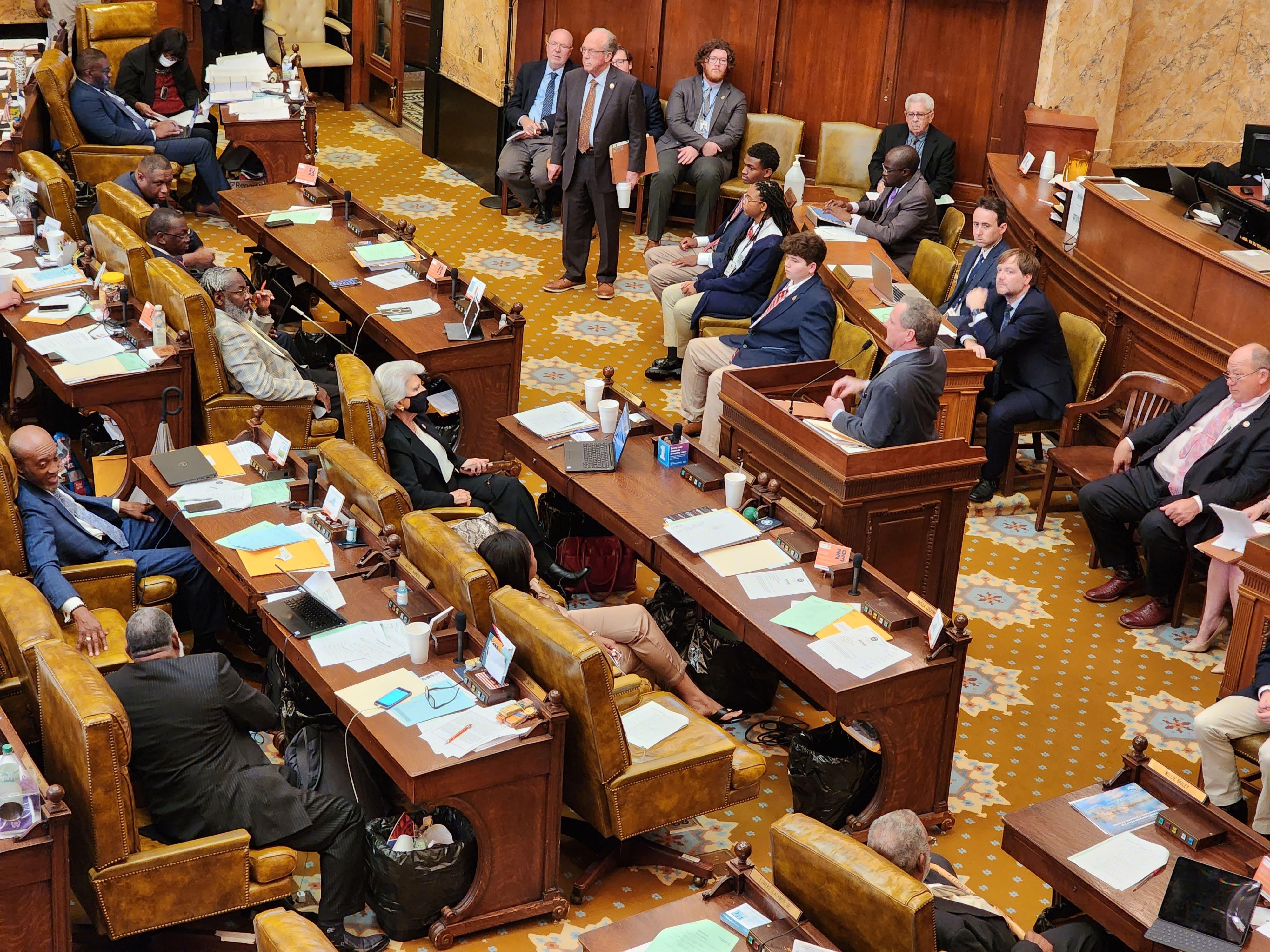House lawmakers are debating if the state should enhance penalties for election fraud. Senate Bill 2352 would codify voting under the name of a deceased person as fraud and carry criminal charges. That bill passed with no opposition, but another measure in the House faced pushback for how it could affect voters.
Representative Jansen Owen of Poplarville authored House Bill 400 which changes the penalty for voting twice in an election to a felony. Currently, it is a misdemeanor to vote twice in an election. Systems are also in place at voting precincts to prevent someone from voting twice. Democratic lawmakers asked him for evidence of the crime occurring in Mississippi.
“I can’t name it off the top of my head, but I believe there have been instances if we can Google it, where people have violated our election crimes,” says Owens. When asked in a follow-up question to clarify if it was a situation where someone voted twice he continued “Where they have either voted twice or filled out fraudulent absentee ballots or whatnot. Yes sir.” Owens did later provide an example where someone had committed this crime.
Another measure, HB 1310, would revise how the state manages voter roles. Following several amendments, the bill outlines a system where if a voter did not participate in two consecutive federal general elections they must respond to a mailed letter to maintain their registration status. Democratic Representative Zakiya Summers of Jackson expressed concerns for how the bill could cause confusion.
“You have to be registered at least 30 days before the election, and so therefore your vote is being denied because you had no idea that you’re on the inactive list in the first place, and you get purged, and you, therefore, can’t participate in our elections,” says Summers.
Amendments were made to the bill to carve out exceptions for those in military service who may not be able to vote in an election or receive mail.




